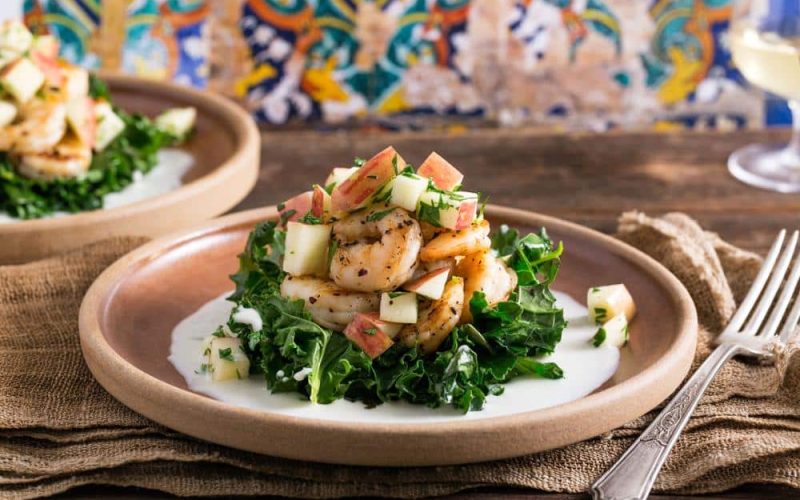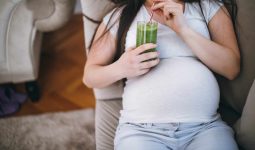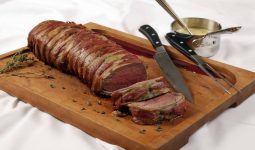So we know about vegetarians but who is a pescatarian and what exactly do they feed on? Anyone who feeds on a vegetarian diet but adds fish and seafood to their meal is a pescatarian.
People choose to forego poultry, game, and meat but add fish and seafood to their diet for several reasons.
Some individuals choose to enjoy a vegetarian diet but also want to include fish to their plant based diet for all the benefits that it has to offer.
Some people might be simply trying to curb the impact their diet has on the environment, while for others it might be a matter of taste.
In this article we will discuss what the benefits and disadvantages of being a pescatarian are, and what pescatarians can eat and must avoid.
Who is a pescatarian?
Anyone who is comfortable eating fish and other sea foods but will never include meat or poultry to his or her diet is a pescatarian.
Pescatarian as a word was coined in the early 90’s and it was formed from the combination of the Italian word for fish which is “pesce,” and the famous word “vegetarian”.
The word pescatarian can alternatively be spelled as pescetarian but both spellings mean the exact same thing.
In a lot of scientific literature, the pescetarian diet is often called “pesco-vegetarian,” and also regularly lumped into the idea of vegetarianism.
By the definition of “pesco-vegetarian,” it is easy to deduce that the word is used to refer to anyone who chooses to feed on a strictly vegetarian diet but will include fish for personal reasons.
In other words, a pescatarian eats grains, legumes, nuts, healthy fats, and includes fish and seashell in his diet as a source of protein as a solely plant based diet may not provide protein in the right quantity.
Many pescatarians also eat eggs and diary.
Of course just the way a vegetarian diet can vary to include milk products and eggs, a pescatarian can include those too.
It is quite possible to find people who eat a completely meat free diet but also eat plenty of processed starch, fish sticks, and junk foods instead of feeding on whole and healthy foods.
Why do people choose to feed on a pescatarian diet?
There are plenty reasons why people choose to live on a pescatarian diet and they include:
1. Health benefits
There are many health benefits that have to linked to a plant based diet and some of them are a lower risk of chronic illnesses like heart disease, obesity, and diabetes.
According to studies, you can enjoy these health benefits from a pescatarian diet aswell. It was recorded in one study that women who fed on pescatarian diet gained 2.5 pounds less than women who are meat each year.
It also showed that people who fed solely on plants gained the least amount of weight. That goes to show that reducing your meat consumption or completely eliminating meat is good for your health especially if you are trying to shed some weight.
It was also discovered that pescatarians have a 4.8% lower risk of having diabetes compared to omnivores that have a higher risk of 7.6%.
In addition to all the above, it was also discovered that people who rarely ate meat or were pescatarians had a 22% less risk of dying from a heart diseases compared to people who are meat.
2. Environmental concerns
We know that raising livestock comes with plenty of environmental consequences. According to reports by the united Nations, raising livestock is guilty of as high as 15% of all human-made carbon emissions.
On the flip side, producing fish and other sea foods leaves a lower carbon footprint than when you produce any form of animal meat and cheese.
A study carried out in 2014 showed that diets of pescatarians caused about 46% less greenhouse gas emissions then those of individuals who consume at least a serving of meat daily.
3. Ethical reasons
One major reason why so people choose to go vegetarian is ethics and that can also be a reason why people choose to go pescatarian.
Some of the ethical reasons why people choose to boycott meat includes
- Standing against slaughter: there are people who are uncomfortable with the idea of killing animals for food.
- Inhumane factory practices: there are many factory farms that raise their animals using inhumane practices.
- Poor labour conditions: factory farms that have poor conditions for their workers is another reason why people may choose to avoid meat.
- Humanitarian reasons: Some people feel that the cultivation of grains for the feeding of animals is unjust because there is too much hunger in the world. And for that reason they choose to avoid feeding on animals.
Removing land animals from your diet treats all the concerns listed. However, over fishing is also a problem and has become a reason why some people decide to avoid fish and meat completely.
What are the foods that pescatarians eat?
A basic pescatarian diet is vegetarian with the addition of fish and seafood. Pescatarians have no problems eating whole grain and grain products, Nuts and nut butters as well as peanuts and seeds.
They also eat Fruits, vegetables, eggs, fish and shellfish, diary products like youghurt and milk, seeds including hemp, flaxseeds, and chia.
Legumes and their products like beans, tofu, humus, and lentils are also a part of a pescatarian diet. Pescatarians do not have any interest in feeding on chicken, beef, pork, turkey, lamb, wild game, or any other land animals for that matter.
What are the benefits of adding fish to a pescatarian diet?
There are several benefits to adding fish to your vegetarian diet. Many people are concerned that completely excluding any form of flesh from their diet may lead to a deficiency of some very vital nutrients.
On a vegan diet, it can be a little difficult to get enough vitamin B12, protein, calcium, and zinc. Adding fish and shellfish to your vegan diet can provide you with beneficial nutrients and still have you living healthy.
The best way to get omega 3 fatty acid is by feeding on fish and you can also get lots of other nutrients from sea foods.
Unlike when you are facing a completely vegan diet, being a pescatarian gives you plenty more options for food and you don’t have to worry about taking protein supplements to meet your daily protein requirement.
Are there any drawbacks associated with living on a pescatarian diet?
There are no drawbacks that have been discovered for now. However, fishes that on the large side like sharks may contain some amount of mercury and other toxins so it is best to avoid them or consume them rarely and in small quantities.
Women who are of child bearing age, those that are pregnant, and also young children should avoid tilefish, king mackerel, shark, and swordfish.
Albacore and yellow fin tuna should also be eaten rarely by the above population.








